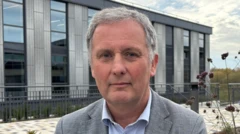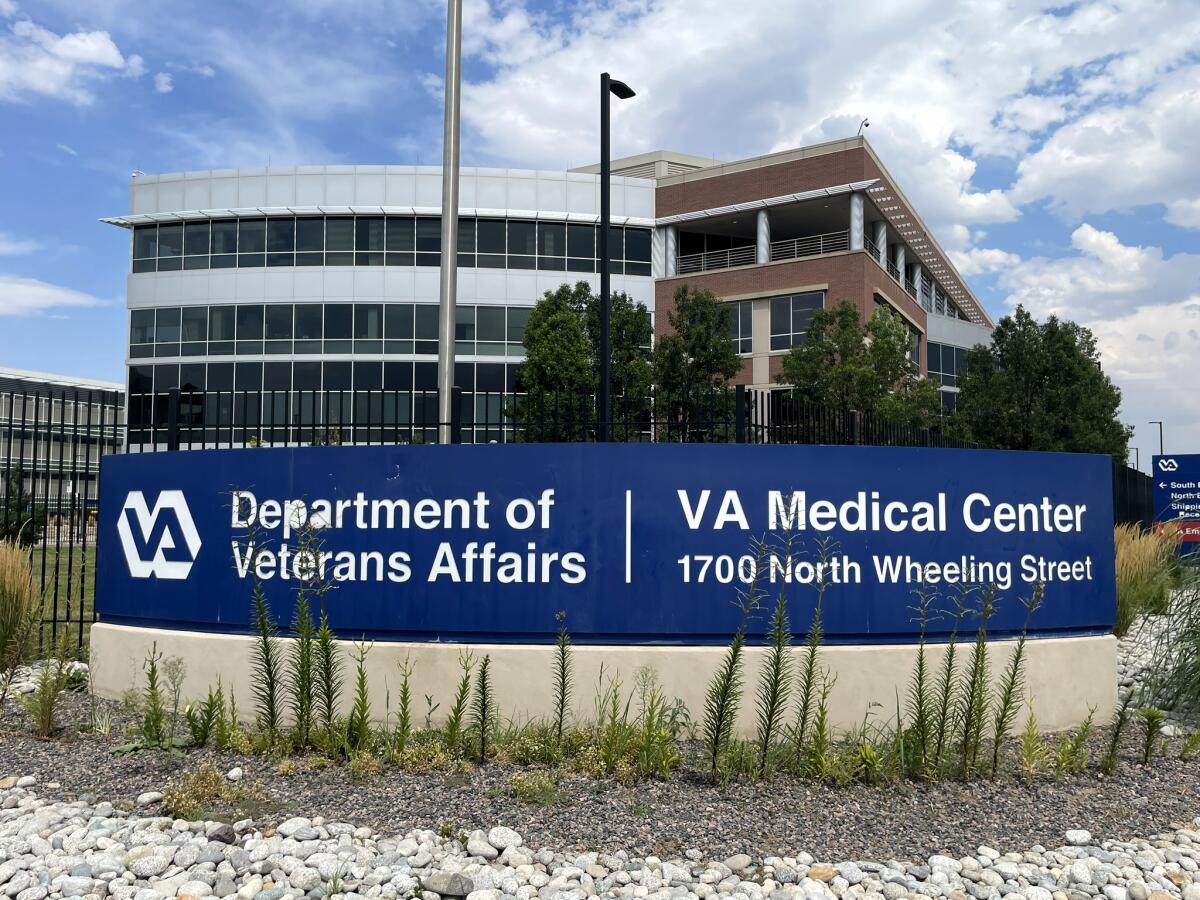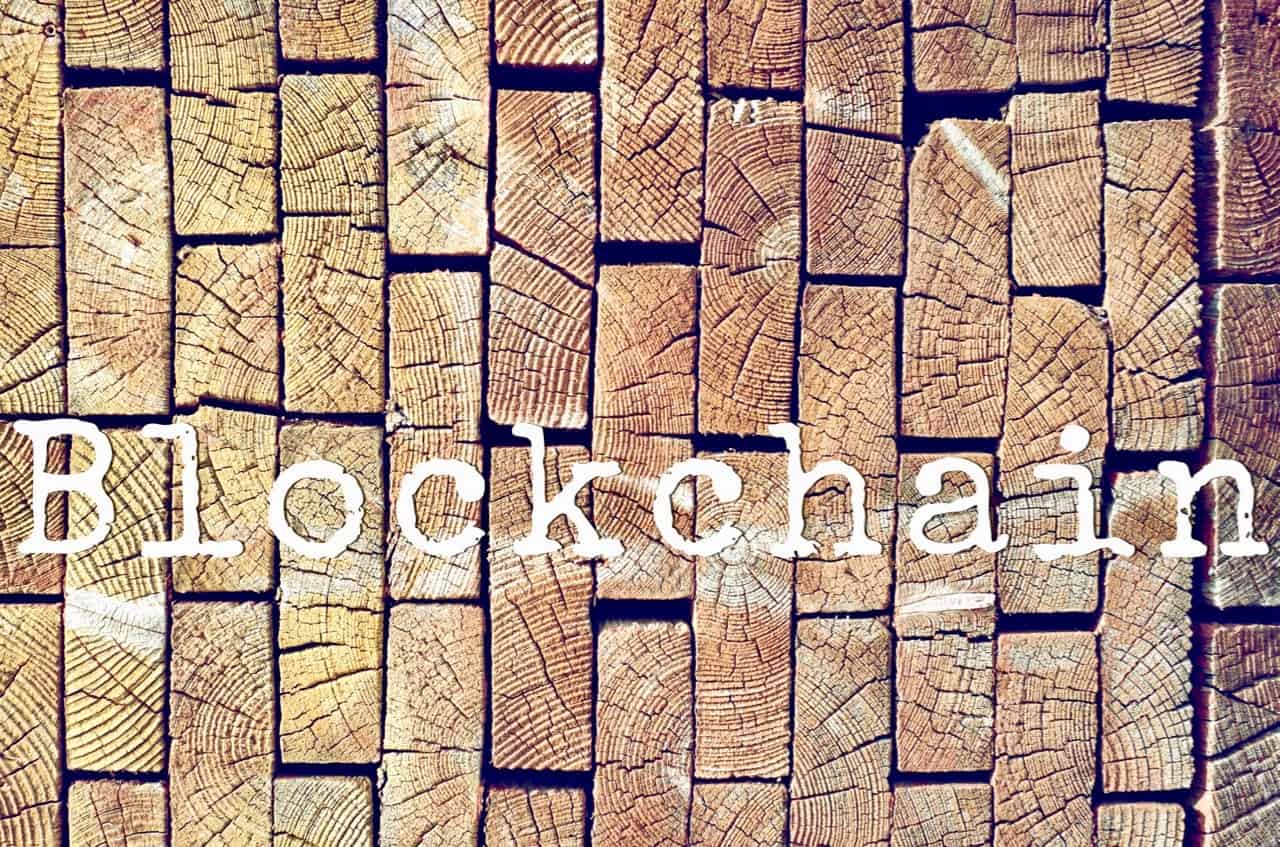Arizona among 20 states challenging social service restrictions for immigrants – AZFamily
Legal Challenge to U.S. Social Service Restrictions and Implications for Sustainable Development Goals
Executive Summary
A coalition of 21 state attorneys general has initiated legal action against the federal administration’s new restrictions on social services for immigrant populations. The lawsuit contends that these restrictions violate procedural law and will have a detrimental impact on community-level programs. This report analyzes the lawsuit and its profound implications for the advancement of several United Nations Sustainable Development Goals (SDGs), including those related to poverty, health, education, and inequality.
Background of the Legal Challenge
- A lawsuit was filed by 21 Democratic attorneys general, led by New York and including Arizona, challenging restrictions on federally funded social services.
- The policy change curtails access for immigrants without legal status to community-level programs, rescinding a Clinton-era interpretation of federal law.
- The lawsuit argues that the administration failed to follow the proper rulemaking process and did not provide adequate notice for conditions placed on federal funds.
- It posits that the new rules will create significant harm and place an unsustainable administrative burden on service providers, potentially leading to program closures.
Affected Services and Alignment with Sustainable Development Goals (SDGs)
The challenged restrictions impact a wide range of essential community services, directly undermining progress toward key SDGs. The potential closure of these programs due to compliance costs would affect all beneficiaries, including low-income U.S. citizens.
-
SDG 1: No Poverty & SDG 2: Zero Hunger
The policy threatens services crucial for poverty alleviation and food security.
- Head Start: This federal preschool program provides comprehensive support, including childcare, to families in poverty, enabling parents to work. Restricting access undermines a critical tool for breaking intergenerational poverty cycles.
- Meals on Wheels: Limiting access to food programs directly contravenes the goal of ending hunger and ensuring access to safe and nutritious food for all.
-
SDG 3: Good Health and Well-being
Access to healthcare is a cornerstone of SDG 3, and the new rules create significant barriers.
- Affected programs include community health clinics, school-based mental health services, crisis hotlines, and substance use disorder treatment.
- Limiting access to these preventative and critical care services for any segment of the population jeopardizes public health outcomes and the goal of ensuring healthy lives for all.
-
SDG 4: Quality Education
The restrictions directly impede access to foundational and continuing education opportunities.
- Head Start: By potentially excluding children from this vital early childhood education program, the policy hinders equitable access to quality pre-primary education, a key target of SDG 4.
- Adult Education: Curbs on adult education programs limit opportunities for lifelong learning, which is essential for personal development and economic adaptation.
-
SDG 10: Reduced Inequalities & SDG 16: Peace, Justice and Strong Institutions
The policy exacerbates social and economic disparities and challenges the principles of justice and institutional accountability.
- The rule explicitly targets a marginalized group, deepening inequality in direct opposition to SDG 10.
- The lawsuit itself represents an appeal to SDG 16, seeking to hold institutions accountable to the rule of law and established procedures.
- Furthermore, restricting access to Victim Services undermines access to justice for vulnerable individuals, a core component of SDG 16.
1. SDGs Addressed or Connected to the Issues
- SDG 1: No Poverty: The article discusses services for families in “poverty” and “low-income backgrounds,” such as Head Start and Meals on Wheels. Restricting access to these services directly impacts efforts to alleviate poverty.
- SDG 2: Zero Hunger: The mention of “Meals on Wheels,” the struggle to “feed their family,” and “food stamps” connects the issue directly to food security and the goal of ending hunger, especially for vulnerable populations.
- SDG 3: Good Health and Well-being: The article explicitly names “health clinics,” “mental health services in schools,” “crisis hotlines,” and “substance use disorder treatment” as programs affected by the new restrictions, which are all critical for public health.
- SDG 4: Quality Education: The federal preschool program “Head Start” is a central focus of the article. The potential closure of these programs and restrictions on “adult education” directly challenge the goal of providing inclusive and quality education for all.
- SDG 10: Reduced Inequalities: The policy specifically targets “immigrants in the country illegally,” creating inequality in access to basic services based on origin and status. The lawsuit frames the issue as an attack on “inclusive public programs,” highlighting the goal of reducing inequality.
- SDG 16: Peace, Justice and Strong Institutions: The article is about a lawsuit filed by attorneys general to challenge a government action on legal grounds (“workaround the law,” failure to “follow the rulemaking process”). This relates to ensuring the rule of law and access to justice. The mention of “Victim Services” also aligns with this goal.
2. Specific Targets Identified
Under SDG 1: No Poverty
- Target 1.3: Implement nationally appropriate social protection systems and measures for all… and achieve substantial coverage of the poor and the vulnerable. The article discusses restrictions on social services like Head Start and Meals on Wheels, which are key components of the social protection system for vulnerable families.
Under SDG 2: Zero Hunger
- Target 2.1: By 2030, end hunger and ensure access by all people, in particular the poor and people in vulnerable situations, including infants, to safe, nutritious and sufficient food all year round. The potential disruption to “Meals on Wheels” and the concern over families being unable to “feed their family” directly relates to ensuring access to food for vulnerable people.
Under SDG 3: Good Health and Well-being
- Target 3.4: By 2030, reduce by one third premature mortality from non-communicable diseases through prevention and treatment and promote mental health and well-being. Restricting access to “mental health services” and “substance use disorder treatment” directly undermines this target.
- Target 3.8: Achieve universal health coverage, including… access to quality essential health-care services. The article’s mention of curbing access to “health clinics” is a direct challenge to providing universal access to essential healthcare.
Under SDG 4: Quality Education
- Target 4.2: By 2030, ensure that all girls and boys have access to quality early childhood development, care and pre-primary education. The threat to “Head Start,” which provides “developmental therapy, child care and preschool,” directly jeopardizes this target for children in poverty or homeless situations.
Under SDG 10: Reduced Inequalities
- Target 10.2: By 2030, empower and promote the social, economic and political inclusion of all, irrespective of… origin… or other status. The policy actively works against the inclusion of individuals based on their immigration status by denying them access to community-level programs.
- Target 10.3: Ensure equal opportunity and reduce inequalities of outcome, including by eliminating discriminatory… policies and practices. The lawsuit challenges the new rules as a discriminatory policy that creates unequal outcomes for immigrants and other low-income groups.
Under SDG 16: Peace, Justice and Strong Institutions
- Target 16.3: Promote the rule of law at the national… level and ensure equal access to justice for all. The lawsuit itself, which argues the administration failed to “follow the rulemaking process” and is attempting to “workaround the law,” is an action to promote the rule of law.
- Target 16.B: Promote and enforce non-discriminatory laws and policies for sustainable development. The legal challenge by the attorneys general aims to overturn what they consider a discriminatory rule change, thereby enforcing the principle of non-discriminatory policies.
3. Indicators Mentioned or Implied
Under SDG 1: No Poverty
- Implied Indicator: The number or proportion of the population covered by social protection systems. The article implies this number will decrease as access to programs like Head Start and Meals on Wheels is restricted for certain groups.
Under SDG 2: Zero Hunger
- Implied Indicator: The prevalence of food insecurity. The statement that Arizonans will “scramble to figure out how to feed their family” implies a rise in food insecurity as a direct result of the policy change.
Under SDG 3: Good Health and Well-being
- Implied Indicator: The coverage of essential health services. The article implies a reduction in this coverage by stating that access to “health clinics,” “mental health services,” and “substance use disorder treatment” is being curbed.
Under SDG 4: Quality Education
- Implied Indicator: The participation rate in organized pre-primary learning. The article suggests this rate will fall, as the administrative burden on Head Start programs may be “so high as to lead to the programs’ closure.”
Under SDG 10: Reduced Inequalities
- Implied Indicator: The proportion of the population reporting having personally felt discriminated against or harassed on the basis of a ground of discrimination prohibited under international human rights law. The policy itself is a form of discrimination based on immigration status, and the lawsuit is a response to it.
Under SDG 16: Peace, Justice and Strong Institutions
- Implied Indicator: The existence of independent national human rights institutions in compliance with the Paris Principles. The actions of the attorneys general to file a lawsuit to uphold the law and protect residents’ rights function in a similar capacity to an institution safeguarding against government overreach.
4. Summary Table of SDGs, Targets, and Indicators
| SDGs | Targets | Indicators (Implied from Article) |
|---|---|---|
| SDG 1: No Poverty | 1.3: Implement nationally appropriate social protection systems and measures for all…and achieve substantial coverage of the poor and the vulnerable. | Decrease in the number of vulnerable people covered by social protection programs like Head Start and Meals on Wheels. |
| SDG 2: Zero Hunger | 2.1: By 2030, end hunger and ensure access by all people…to safe, nutritious and sufficient food all year round. | Increase in the number of families facing food insecurity due to loss of access to programs like Meals on Wheels. |
| SDG 3: Good Health and Well-being | 3.8: Achieve universal health coverage…access to quality essential health-care services. | Reduction in access to essential services such as health clinics, mental health support, and substance use treatment. |
| SDG 4: Quality Education | 4.2: By 2030, ensure that all girls and boys have access to quality early childhood development, care and pre-primary education. | Decrease in participation rates in pre-primary education due to potential closures of Head Start programs. |
| SDG 10: Reduced Inequalities | 10.3: Ensure equal opportunity and reduce inequalities of outcome, including by eliminating discriminatory…policies and practices. | The existence of a government policy that restricts access to services based on immigration status. |
| SDG 16: Peace, Justice and Strong Institutions | 16.3: Promote the rule of law at the national…level and ensure equal access to justice for all. | The filing of a lawsuit by state attorneys general to challenge a federal government action for not following the legal rulemaking process. |
Source: azfamily.com

What is Your Reaction?
 Like
0
Like
0
 Dislike
0
Dislike
0
 Love
0
Love
0
 Funny
0
Funny
0
 Angry
0
Angry
0
 Sad
0
Sad
0
 Wow
0
Wow
0
